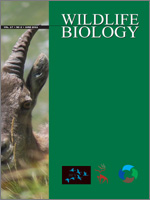Translocation is a non-lethal practice used to manage carnivore-livestock conflicts. Nevertheless, its use has been questioned due to its low success rate and high cost. We performed a literature review to assess the effectiveness of translocation, human-related mortality and cost. We estimated the overall effectiveness to be 42% ± 6, felids were involved in 70% of the translocations and 80% of the case studies were conducted in North America and Africa. Human-related mortality accounted for the 83% of deaths after translocations. Translocation cost per individual was estimated at US$ 3,756 ± 357 (N = 16), a sum equivalent to compensate for up to 30 livestock heads. For conservation purposes, translocation is costly and less effective than other alternatives such as compensation with best herding practices.
How to translate text using browser tools
1 June 2011
Translocations and human-carnivore conflicts: problem solving or problem creating?
Francisco E. Fontúrbel,
Javier A. Simonetti
<
Previous Article
|

Wildlife Biology
Vol. 17 • No. 2
June 2011
Vol. 17 • No. 2
June 2011
compensation
felids
human-related mortality
lethal control
predation
survival





